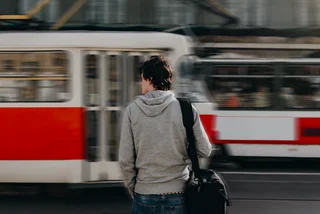A recent study from expat community network InterNations found that Czechia was one of the hardest places in the world to settle in as an expat. However, if you’ve moved to Czechia for work, you may have asked yourself a question bordering on the existential: “Am I an expat or immigrant?”
It might all depend on which exact type of worker you are. “A person working in a multinational company that takes care of its international employees does not need to speak much Czech because they can navigate solely in the English-speaking community,” director of the Center for the Integration of Foreigners Anna Marie Vinařická told Czechia media outlet Seznam Zprávy recently. In short, expats don’t need to get too involved in Czech society; they live in their social bubble,” Vinařická adds.
On the flipside, a worker who has left their country due to poor economic prospects has “much more difficult conditions,” and is therefore more likely to be viewed as an immigrant. They also are more likely to need to learn Czech, unlike the average expat.
Does it also depend where you're from?
Ingrained sociocultural biases may impact how both these terms are used. A BBC article explains that the word “expat” is typically used to describe educated, rich professionals working abroad, while those in less privileged positions or from poorer countries are deemed foreign workers, or immigrants.
The expat versus immigrant debate, the BBC notes, carries many connotations, preconceptions, and assumptions about class, education, and privilege – many of which are simply wrong.
We want to know your views on what the term expat really means to you. Do you find it an applicable term or redundant? And do you think the term means something different today than in the past? What do you see yourself as?












 Reading time: 1 minute
Reading time: 1 minute 


















